Brian Clegg's Blog, page 112
September 9, 2013
Seriously strange? Strangely serious
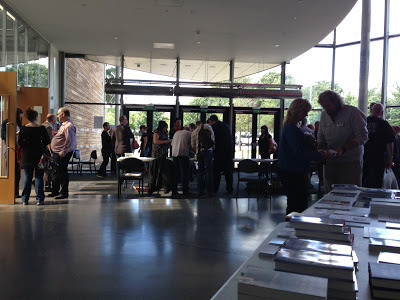 Conference registration in action - and not a vampire in sightI had the pleasure of spending the day at Bath University on Saturday, taking part in the Serious Strange conference. This was the annual get-together of ASSAP (the Assocation for the Scientific Study of Anomalous Phenomena). Not surprisingly I got the invitation to appear on a panel there as a result of writing
Extra Sensory
.
Conference registration in action - and not a vampire in sightI had the pleasure of spending the day at Bath University on Saturday, taking part in the Serious Strange conference. This was the annual get-together of ASSAP (the Assocation for the Scientific Study of Anomalous Phenomena). Not surprisingly I got the invitation to appear on a panel there as a result of writing
Extra Sensory
.Now, if I'm honest, one or two scientists of my acquaintance have been a bit snarky about my attending this event, suggesting it would be a load of woo, and that it would be frequented by weirdos who probably dress up as ghouls or vampires or something. I'm pleased to reveal they were wrong on both counts.
I really would say there was no big difference between the attendees and those I'd come across at a science festival with two slight variants that there were probably more women and definitely fewer children - in fact no children - but this was a conference rather than a festival. Yes there were one or two strange people, but that's just a fact of life when you gather together 250 people with a strong interest in any subject - but that vast majority were rational, intelligence, interesting folk that just happen to take an interest in the paranormal.
As for the 'load of woo', certainly there were some topics covered that were on the edge science-wise (ghosts, UFOs and such, and particularly EVP), but some took a decidedly sceptical approach. It was interesting that in the panel I took part in (looking at whether or not parapsychology has achieved anything), there was much more interest in studying why humans believe in such strange phenomena, rather than investigating the phenomena themselves. So this was only worrying stuff if you count psychology, sociology and anthropology as woo. They may not be the hardest of sciences, but they are without doubt 'ologies' as Maureen Lipmann used to say on the BT ad. In fact the discussion proved to be both interesting and academic in tone.
So I'm glad I went, and send a loud raspberry to those who were prepared to dismiss the whole thing without even finding out what it really was about. It's a bit like the infamous quote from Richard Dawkins, when asked to consider the evidence for parapsychology. 'I'm not interested in evidence,' Dawkins is alleged to have said. Not being interested in evidence? Now that IS woo.
Published on September 09, 2013 00:31
September 6, 2013
Amazon plays guess the IRS
 ... but only if you get US tax info rightAmerican citizens may be delighted to hear that they aren't the only ones who suffer at the hands of the IRS. If you are a foreigner who earns money in the US (for example, an author with a US publisher), you need to be registered with the IRS, which in my case involved having to take a form to the US Embassy in London with my passport and generally mess about to get a magic number called an ITIN.
... but only if you get US tax info rightAmerican citizens may be delighted to hear that they aren't the only ones who suffer at the hands of the IRS. If you are a foreigner who earns money in the US (for example, an author with a US publisher), you need to be registered with the IRS, which in my case involved having to take a form to the US Embassy in London with my passport and generally mess about to get a magic number called an ITIN.So far, so good. Generally speaking, when I deal with a publisher I just give them my ITIN and it all works, but I have just spent a very silly time playing games with Amazon, because they don't make it so easy. To be able to publish Kindle ebooks, you have to fill in an online tax form. But here's the thing. Unless the details you fill in (about ten different items) exactly match the details they have from the IRS, it is rejected. But they don't tell you what you got wrong.
Now I have various bits of documentation from the IRS, all with subtly different variants of the information. So the guessing game starts. It took me three tries to guess the information that the online system wanted me to give.
Arrggh. Sound of hair being torn out.
You'd think Amazon wasn't a global company, like they keep claiming to be when they are avoiding tax. I'm sure a true global company would manage to handle tax in your own country.
Published on September 06, 2013 02:13
September 5, 2013
Assumptions, assumptions
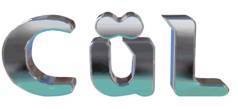 Creativity Unleashed Limited - spot the cognitive dissonanceWhen I'm training businesses in creativity techniques, one of the first things I try to hammer into them is that assumptions kill creativity. We all make assumptions all the time. How we do things. What's allowed (and what's not). What's possible (and what's not). The rules. And so on. And every one of these assumptions gets in the way of being creative. Throw them out and you can solve many more problems. Of course, you might break the law in the process. But this isn't a problem.
Creativity Unleashed Limited - spot the cognitive dissonanceWhen I'm training businesses in creativity techniques, one of the first things I try to hammer into them is that assumptions kill creativity. We all make assumptions all the time. How we do things. What's allowed (and what's not). What's possible (and what's not). The rules. And so on. And every one of these assumptions gets in the way of being creative. Throw them out and you can solve many more problems. Of course, you might break the law in the process. But this isn't a problem.Why? Because it is much easier to take a wonderful, attractive, but impractical idea and make it practical than it is to take a dull but practical idea and make it wonderful and attractive. So banish assumptions to begin with when trying to be creative, then re-impose them later as you refine your ideas and make them usable.
Sometimes assumptions can be downright dangerous, as I discovered in my teens. On my way to school I used to walk through the centre of Manchester, a busy city in the North of England. I went the same route every day and I knew which of the streets I crossed were one way streets. So like many apparently streetwise city dwellers I tended to show off my knowledge by only bothering to look down the street in the direction I knew cars would come from. Until the day a car went the wrong way down a one-way street and only just managed to stop with its bumper nestling against my legs.
So if you are with me in a city and feel the urge to snigger when I always look to make sure traffic isn't coming from the wrong direction in a one way street, suppress that urge. I am just making sure that I don't make a deadly assumption.
Published on September 05, 2013 02:50
September 3, 2013
Psi vision goggles
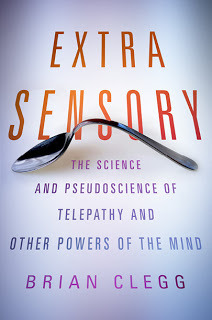 In the first chapter of my recent book
Extra Sensory
I wrote this:
In the first chapter of my recent book
Extra Sensory
I wrote this:It has been interesting that the reviews I've had so far fall into three camps, which sadly reflect the fact that quite a lot of people aren't prepared to look with fresh eyes, but merely fall back on their old prejudices.Some scientists are scornful, claiming that it’s all over for paranormal abilities. They point out that traditionally many things that were once considered supernatural we now know to be either imaginary or the product of perfectly normal, natural phenomena. The supernatural aspects were first dismissed by science, and that dismissal has been gradually accepted by the general public. So, for instance, lightning was once seen as an unearthly force, quite possibly propelled by the wrath of the gods. Although there are technical aspects of the way that lightning is produced that we still don’t understand, there are few people indeed who don’t accept that lightning is a purely physical phenomenon, an electrical effect on a tremendous scale. It may be quite unlike the kind of thing that comes out of the socket at home, but it’s electricity nonetheless.If you look back at the remarkable summaries of thirteenth century proto-science produced by natural philosopher and friar Roger Bacon in books like the Opus Majus, there are plenty of travelers’ tales that we would now dismiss out of hand and that we wouldn’t consider to be serious descriptions of the real world. You will find descriptions of tribes of wild Amazon female warriors and mysterious devices for seeing at a distance that go beyond even the capabilities of a telescope. There are many marvelous, if unlikely examples that were thought to be part of nature. For example, in his Letter Concerning the Marvelous Power of Art and of Nature and Concerning the Nullity of Magic, Bacon tells us:as for instance that the Basilisk kills by sight alone, that the wolf makes a man hoarse if he sees him first, and that the hyena does not permit a dog to bark if he comes within its shadow ... Aristotle tells in the book De vegetabilibus that female palm trees mature ripe fruit through the odour of the males; and mares in certain countries are fertilized by the smell of horses ...These were all serious beliefs back then, as close to science as anything came. But these beliefs have joined leprechauns and fairies in the ranks of ideas that were not just an incorrect observation of nature but totally fictitious. Just as these misinterpretations and fictions have disappeared from everyday life it is argued by some skeptics who can’t even be bothered to examine the evidence that telepathy, remote viewing, telekinesis and the like have also reached a stage where they should no longer be considered anything more than a fantasy or a historical misunderstanding.I would suggest that we have not reached that stage while there are so many people who still think that there is something to be investigated, and while a host of experiments have thrown up evidence that at least needs careful examination. We ought to take a look at that evidence with fresh eyes, biased neither by enthusiasm for the topic nor by scientific blindness that refuses to even look at the evidence because we “know” there is nothing to see.
The first camp is the purely sceptical science camp. They have shown their position by simply ignoring the book. Of course any book can fail to garner reviews, but on past evidence of my books, this is unlikely to be the case entirely. So along with Richard Dawkins, this group is probably saying 'I am not interested in the evidence.' Then there's a second camp that gets it. Thank you to them. Finally, and most vocally in terms of reviews, are those who, as I put it above, are 'biassed by enthusiasm for the topic'. They accuse me of being a secret sceptic or say I unfairly make parapsychology sound in a bad way. This suggests, of course, there is something wrong with being sceptic. But scepticism, if applied properly is neutral. What they mean by 'sceptic' is someone who starts with the assumption there are no psi phenomena, which anyone actually reading the book would see is not the approach I took.
As for parapsychology being in a bad way, I think it is. We aren't seeing the big pieces of work like Rhine's and PEAR any more. And ever since Rhine, the field has been dogged by a combination of being unwilling to apply proper controls and by an obsession with looking for small statistical variations, rather than actual direct evidence. I'd suggest it does need an overhaul.
I can't say those who accuse me of being a secret sceptic upset me - but I do think it's funny that they can't see how thick the distorting goggles they themselves wear are.
Published on September 03, 2013 00:59
More Ancient than Modern
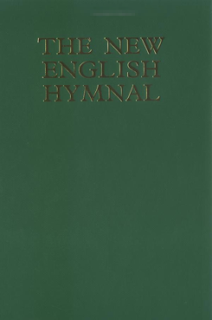 The real dealI love church music. I have been singing it for 40 years and it includes some of the most beautiful music ever written. Which is why I want to ask the churches of Britain why the have such a love affair with Ancient and Modern hymn books.
The real dealI love church music. I have been singing it for 40 years and it includes some of the most beautiful music ever written. Which is why I want to ask the churches of Britain why the have such a love affair with Ancient and Modern hymn books.I need to give a little historical perspective. Back in Victorian times there was only one hymn book worth using - Hymns Ancient and Modern. But it had significant problems. It was chock full of nauseously maudlin Victorian hymns that no one in their right mind would sing these days. And many of its tunes and harmonies were awful. For example, Welsh tunes were excluded, omitting some of the greatest melodies ever. The only possible reason I can see for this was racism. Seriously. As for harmonies, Bach was bowdlerised and many of the other hymns had dull harmonies not worth singing.
One man was primarily responsible for countering this - the great Ralph Vaughan Williams. He masterminded the musical content of the 20th century rival that took the nation's cathedrals by storm - The English Hymnal (updated to New English Hymnal). There is hardly a cathedral in the land that doesn't use this. Yet most parish churches stick with A and M. The good news is that if they buy the latest version of that book, they are in for a serious awakening. A and M has now imported many of RVW's gorgeous harmonies, and does allow Welsh tunes (though sometimes as a 'second' tune to a totally limp one). It has also done away with some of the crazy omissions - superb numbers from English Hymnal, like the Russian Kontakion for the Dead, and the mildly bonkers (the tune changes part way through) but glorious St Patrick's Breastplate.
So that's it, really. Next time you replace your hymn books, churches, put the New English Hymnal at the top of your list for a real hymn book, but if you must go for A and M, choose the latest one.
I'll leave you not with a hymn, but with an example of the sort of Tudorbethan church music that makes life worth living, in a wonderful, contemplative fashion, William Byrd's Ave Verum Corpus.
Published on September 03, 2013 00:06
September 2, 2013
Be mine, calamine
 When I was young, should you get sunburned (and we often did because we didn't have sunblock) the answer was to swathe the painful red bits in soothing pink calamine lotion. The active ingredient in this was zinc oxide - and that's the subject of my latest podcast for the Royal Society of Chemistry.
When I was young, should you get sunburned (and we often did because we didn't have sunblock) the answer was to swathe the painful red bits in soothing pink calamine lotion. The active ingredient in this was zinc oxide - and that's the subject of my latest podcast for the Royal Society of Chemistry.Slap on the sun protection and hurry over to the RSC compounds site to see more on this useful inorganic compound. If you'd like to listen straight away, just click here.
Published on September 02, 2013 00:37
August 30, 2013
The Woman who understood Newton
I'm not a great fan of writing blog posts by copying press releases, but this is one I found genuinely interesting, so I am sharing it with you!
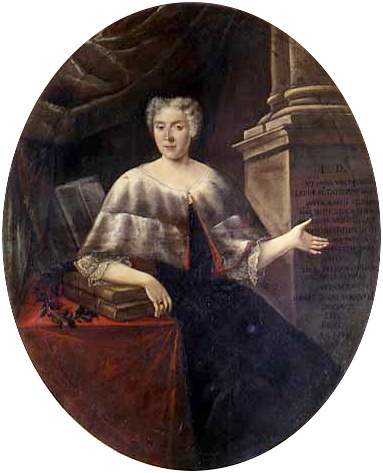 Laura Bassi - from WikipediaIn this month’s edition of Physics World, Paula Findlen from Stanford University profiles Laura Bassi – an emblematic and influential physicist from the 18th century who can be regarded as the first ever woman to forge a professional scientific career.
Laura Bassi - from WikipediaIn this month’s edition of Physics World, Paula Findlen from Stanford University profiles Laura Bassi – an emblematic and influential physicist from the 18th century who can be regarded as the first ever woman to forge a professional scientific career.
Once described as the “woman who understood Newton”, Laura Bassi – born in the city of Bologna in 1711 – rose to celebrity status in Italy and all across the globe, gaining a reputation as being the best physics teacher of her generation and helping to develop the discipline of experimental physics.
Bassi held numerous professorships and academy memberships throughout her life, starting as a professor of universal philosophy at the University of Bologna in 1732, where she may have been the first woman to have embarked upon a fully fledged scientific career. Shortly before that, Bassi became only the second woman, for whom there is documentary evidence, to have ever received a university degree.
Her professorship at the University of Bologna was created solely for her, beyond the normal number of faculty positions, as was her admission to the Academy of Sciences of Bologna Institute – an equivalent of the Royal Society – which was the vehicle that propelled Bassi into the public eye.
Like most celebrity figures, Bassi’s career was not without controversy. Pressure from older male colleagues, who considered it indecent for a young woman to be discussing ideas of nature with them, resulted in the archbishop of Bologna making an explicit injunction on her university professorship – she was only allowed to lecture occasionally when she was specifically asked.
Bassi was extremely passionate about her teaching and, when her request to have this injunction lifted was declined, she chose to raise her scientific value instead through an additional programme of private study. She also shocked some observers by reading books that were prohibited by the Roman Catholic Church, including works by Protestant scientists such as Galileo and Descartes.
After marrying fellow professor Giuseppe Veratti in 1738, Bassi was able to invite guests to her house to discuss physics without violating her teaching restrictions. In 1749 Bassi officially opened her domestic school, bringing renewed and more lasting fame.
In 1764 physician John Morgan – a friend of Benjamin Franklin – visited the Bassi–Veratti home laboratory and watched Bassi perform Newton’s prism experiments, promising to tell his famous American friend that he had met her.
Alessandro Volta – who later became the inventor of the battery – sent Bassi his earliest publications, hoping to gain approval for his work. The culmination of this appreciation came in 1776 – two years before her death – when Bassi was appointed Bologna Institute professor of experimental physics. "The Bologna academicians, in the end, had learned to live with the century’s most famous female scientist as their colleague for almost 45 years," writes Findlen.
One reason for Bassi’s relative obscurity today is that only four of her papers appeared in print during or after her lifetime. Many of Bassi’s unpublished papers went missing during the Napoleonic era. However, Findlen concludes that Bassi’s outstanding contributions were made through conversation, demonstration, experimentation and explanation.
“She produced the kinds of incremental results that tend to accrue with far more ordinary research that – although not worthy of a Nobel prize – is essential to the daily pursuit of science. She reminds us of the importance of the kind of person who can reveal dimensions of science other than a singularly great discovery or insight,” writes Findlen.
Find out more at Physics World's website. (And see Seduced by Logic for two more historical female science stars.)
 Laura Bassi - from WikipediaIn this month’s edition of Physics World, Paula Findlen from Stanford University profiles Laura Bassi – an emblematic and influential physicist from the 18th century who can be regarded as the first ever woman to forge a professional scientific career.
Laura Bassi - from WikipediaIn this month’s edition of Physics World, Paula Findlen from Stanford University profiles Laura Bassi – an emblematic and influential physicist from the 18th century who can be regarded as the first ever woman to forge a professional scientific career.Once described as the “woman who understood Newton”, Laura Bassi – born in the city of Bologna in 1711 – rose to celebrity status in Italy and all across the globe, gaining a reputation as being the best physics teacher of her generation and helping to develop the discipline of experimental physics.
Bassi held numerous professorships and academy memberships throughout her life, starting as a professor of universal philosophy at the University of Bologna in 1732, where she may have been the first woman to have embarked upon a fully fledged scientific career. Shortly before that, Bassi became only the second woman, for whom there is documentary evidence, to have ever received a university degree.
Her professorship at the University of Bologna was created solely for her, beyond the normal number of faculty positions, as was her admission to the Academy of Sciences of Bologna Institute – an equivalent of the Royal Society – which was the vehicle that propelled Bassi into the public eye.
Like most celebrity figures, Bassi’s career was not without controversy. Pressure from older male colleagues, who considered it indecent for a young woman to be discussing ideas of nature with them, resulted in the archbishop of Bologna making an explicit injunction on her university professorship – she was only allowed to lecture occasionally when she was specifically asked.
Bassi was extremely passionate about her teaching and, when her request to have this injunction lifted was declined, she chose to raise her scientific value instead through an additional programme of private study. She also shocked some observers by reading books that were prohibited by the Roman Catholic Church, including works by Protestant scientists such as Galileo and Descartes.
After marrying fellow professor Giuseppe Veratti in 1738, Bassi was able to invite guests to her house to discuss physics without violating her teaching restrictions. In 1749 Bassi officially opened her domestic school, bringing renewed and more lasting fame.
In 1764 physician John Morgan – a friend of Benjamin Franklin – visited the Bassi–Veratti home laboratory and watched Bassi perform Newton’s prism experiments, promising to tell his famous American friend that he had met her.
Alessandro Volta – who later became the inventor of the battery – sent Bassi his earliest publications, hoping to gain approval for his work. The culmination of this appreciation came in 1776 – two years before her death – when Bassi was appointed Bologna Institute professor of experimental physics. "The Bologna academicians, in the end, had learned to live with the century’s most famous female scientist as their colleague for almost 45 years," writes Findlen.
One reason for Bassi’s relative obscurity today is that only four of her papers appeared in print during or after her lifetime. Many of Bassi’s unpublished papers went missing during the Napoleonic era. However, Findlen concludes that Bassi’s outstanding contributions were made through conversation, demonstration, experimentation and explanation.
“She produced the kinds of incremental results that tend to accrue with far more ordinary research that – although not worthy of a Nobel prize – is essential to the daily pursuit of science. She reminds us of the importance of the kind of person who can reveal dimensions of science other than a singularly great discovery or insight,” writes Findlen.
Find out more at Physics World's website. (And see Seduced by Logic for two more historical female science stars.)
Published on August 30, 2013 02:34
August 29, 2013
Bringing home the Bacon
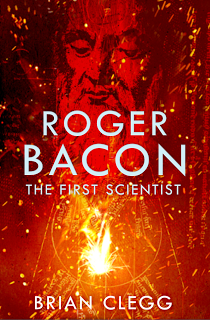 I'm delighted that my book on the thirteenth century proto-scientist Roger Bacon (now helpful retitled
Roger Bacon
from the old The First Scientist) is now back in print, or rather in virtualish ebook form from Kindle to iBook.
I'm delighted that my book on the thirteenth century proto-scientist Roger Bacon (now helpful retitled
Roger Bacon
from the old The First Scientist) is now back in print, or rather in virtualish ebook form from Kindle to iBook.There are three fascinating things here. First there's the medieval university life, complete with murders and riots and other fun activities. Then there's Bacon's remarkable attempt to codify scientific knowledge. The ideas just poured out of him to such a degree that his original proposal - not the book, just the proposal - turned out at over 500,000 words. In it he devised the modern dictionary, used Cartesian coordinates, gave the latest ideas on optics and a whole host of other early bits of work (plus some classic misunderstandings of the period).
The final remarkable thing is the story of his attempt to write an encyclopaedia of science, faced by a ban on writing books for his religious order and problems with the pope. It had more highs and lows than a soap opera plot.
All in all, Bacon's is a remarkable story, with great insights into the early forming of science - so it's brilliant to have my book available again. Take a look at its page.
As Professor Heinz Wolff so kindly said:
Roger Bacon was a polymath, prepared to think beyond the doctrine of the time, despite being constrained by the by the all pervading influence of religious dogma... The author’s talent for giving the reader an almost tangible feeling for the atmosphere of 13th Century Europe in general and of England in particular was marvellous – I found it fascinating.
Published on August 29, 2013 03:02
August 26, 2013
Quizzically challenged
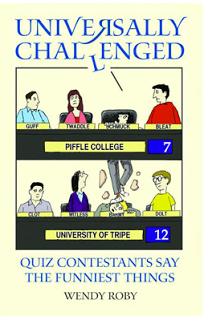 Having been on University Challenge (if only as the subject of a question) I had a natural interest in the book Universally Challenged, quiz contestants say the funniest things. It was a slight let down that most of the contents have nothing to do with that august BBC 2 quiz show, featuring rather less academic ventures, but it doesn't stop the responses being entertaining.
Having been on University Challenge (if only as the subject of a question) I had a natural interest in the book Universally Challenged, quiz contestants say the funniest things. It was a slight let down that most of the contents have nothing to do with that august BBC 2 quiz show, featuring rather less academic ventures, but it doesn't stop the responses being entertaining.What we have here is a whole stream of wrong answers from the downright dumb to the entertainingly wacky (I particularly liked 'What insect is commonly found hovering over lakes?' - 'Crocodiles.')
Admittedly there were a few questions where I doubted the selection, because the answer made too much sense. There was, for instance, 'Name a place where you take your clothes off beside home?' to which the apparently funny answer was 'School.' Now, I can see why this was considered funny, but in fairness to the contestant it was also correct - most people have taken off clothes at school to change into games kit. But even these doubtful questions were interesting because it meant you could feel superior to the editor of the book, Wendy Roby, because you know better than she did.
I read the whole thing through while on holiday, which was possibly a mistake, as apart from the truly hilarious and wildly eccentric answers, it could feel a little flat, reading question and answer after question and answer. It may be it's a better book to dip into - perhaps to keep beside the loo. But there is no doubt that it makes a great combination of entertainment and mind boggling at humanity's ability to get it wrong - and it would make an ideal gift.
You can see more and buy it at Presents for Men (amongst other presents that really could be for anyone, not just men).
Published on August 26, 2013 23:37
Tread carefully in the mindfield
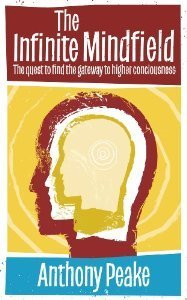 I was excited to get my hands on Anthony Peake's new book The Infinite Mindfield, as I had found his previous title taking a scientific approach to life after death intriguing - and there are parts of the new book I found equally excellent. I was fascinated to learn more about the pineal gland, about which I had very little idea, apart from knowing of the now dismissed idea that identified it as a kind of withered third eye. It is particularly fascinating that the gland can contain piezoelectric crystals that in principle mean it could act as a kind of natural radio receiver. There were also other parts of the book about the nature of light, zero point energy, hallucinogenic drugs and more that were very approachable. Peake has a great way of making you really think about a subject, rather than just take in a set of facts. However there were other sections that I have problems with.
I was excited to get my hands on Anthony Peake's new book The Infinite Mindfield, as I had found his previous title taking a scientific approach to life after death intriguing - and there are parts of the new book I found equally excellent. I was fascinated to learn more about the pineal gland, about which I had very little idea, apart from knowing of the now dismissed idea that identified it as a kind of withered third eye. It is particularly fascinating that the gland can contain piezoelectric crystals that in principle mean it could act as a kind of natural radio receiver. There were also other parts of the book about the nature of light, zero point energy, hallucinogenic drugs and more that were very approachable. Peake has a great way of making you really think about a subject, rather than just take in a set of facts. However there were other sections that I have problems with.The overall approach that I felt unsure with was the lack of selectivity. Everything from the outcome of detailed scientific study to the made up meanderings of the likes of Madam Blavatsky and Rudolf Steiner are presented on exactly the same level as if they are all true. Totally unsubstantiated concepts like chakras, based on the concept of an 'energy' that has never been detected and that has no physical basis are stated as if they are simple fact. I think the first section of the book, which looks at various religions (through to less well established concepts like theosophy and anthroposophy) is genuinely interesting, but I would have been much more comfortable if the various beliefs were stated in terms of 'this is what these people believe based on no verifiable evidence' rather that stating the beliefs, however unlikely, as if they were on a par with scientific discovery. (I've checked with the author, and this wasn't the intent, but it is how it came across to me.)
The other side of the book I have issues with is the way some fringe science is presented as if it is on a par with proper, peer reviewed discoveries. So, for instance, we hear of Luc Montagnier's assertion that DNA in one test-tube can influence pure water in another test-tube and turn it into more DNA. We are told 'Montagnier thinks that this suggests that DNA emits its own electromagnetic signals that imprint DNA's structure on other molecules.' Peake points out that it is telling that even a 'Nobel Prizewinning scientist is not immune to being labelled a "pseudoscientist" if he decides to apply his knowledge and experience in areas that are labelled "fringe" by the modern equivalent of the Inquisition, the "thought police" who hide under the term "sceptics."'
I have a number of problems with this. Just because someone is a renowned scientist does not mean he can't be totally ignorant outside his field - there have been plenty of examples of this in the past. And Montagnier, a medical doctor, is hardly qualified to deal with physics. Just think what he claims is happening. In order to transform water into DNA you would have to turn the elements hydrogen and oxygen into nitrogen, carbon and phosphorous. So this is not just a matter of 'imposing structure' - you would have to produce nuclear fission and fusion using only a 'weak electromagnetic field'. To say this doesn't make sense is an understatement. It is not unreasonable, or Inquisition-like to be sceptical in the face of such a claim.
Finally, I am a little concerned when Peake spends quite a while telling us how 'mainstream scientists have dismissed the vast majority of [DNA] code as being useless.' This might have been true 30 years ago, but since the development of epigenetics I can't imagine there are any biologists who think that what used to be labelled 'junk DNA' is useless. It is entirely recognised by mainstream science that much of this DNA has plenty of functionality.
So my problem with this book is mostly a failure to distinguish, sometimes between analogy and reality - so assuming the use of terms like 'energy' and 'light' when applied in an illustrative manner makes them the same as real energy and light - and sometimes not distinguishing between made up ideas and scientific theories, or between anecdote and data. There is plenty of good stuff in there, and if you can read the book in an appropriately selective manner it is both enjoyable and informative - but I suspect many readers will struggle to make that distinction. I am reminded in some ways of Chariot of the Gods - there is a similar logical, informative and entertaining approach, but also a similar lack of distinction between science and beliefs. A curate's egg? Definitely. But one I enjoyed nevertheless.
See more at Amazon.co.uk and Amazon.com
Published on August 26, 2013 00:59



